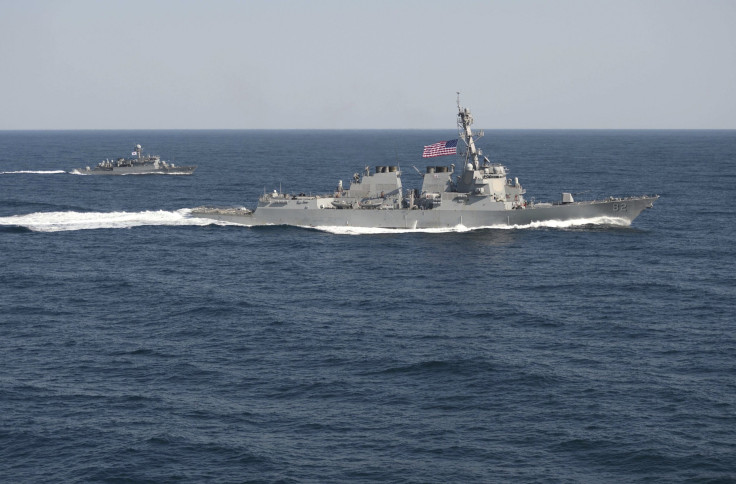South China Sea Controversy: China Warns Japan PM Shinzo Abe To Stay Out Of Dispute With US

China expressed its displeasure Saturday with Japanese Prime Minister Shinzo Abe’s plan to discuss recent issues in the South China Sea during his upcoming talks with Chinese Premier Li Keqiang, the Japan Times reported.
“I wonder what Japan has to do with the South China Sea,” Chinese Foreign Minister Wang Yi told reporters in Seoul one day before the two countries’ leaders were scheduled to meet as part of a summit with South Korean President Park Geun-hye.
Japanese government officials told The Japan Times this week that Abe will raise concerns over China’s island-building in the hotly contested sea. Abe wants to urge China to respect international law and freedom of navigation in the area. The officials described China’s activities as “unilateral attempts to change the status quo,” according to the Japan Times.
The meeting between Abe and Li comes as tensions have risen in the South China Sea after China objected to the presence of a United States warship in waters Beijing has claimed. The USS Lassen sailed Tuesday within 12 nautical miles of one of China’s man-made islands, prompting a rebuke and threat from Beijing.
China’s naval commander Admiral Wu Shengli told the U.S. Friday that a minor incident in the area could lead to war if the U.S. did not stop its “provocative acts,” according to Reuters.
"If the United States continues with these kinds of dangerous, provocative acts, there could well be a seriously pressing situation between frontline forces from both sides on the sea and in the air, or even a minor incident that sparks war," a statement paraphrased Wu as saying, Reuters reported.
"(I) hope the U.S. side cherishes the good situation between the Chinese and U.S. navies that has not come easily and avoids these kinds of incidents from happening again," Wu added.
Officials from both countries said their naval chiefs would maintain communication and follow previously established protocols to avoid future clashes. A spokesman for the U.S. Navy told Reuters Friday that U.S. freedom of navigation activities were designed to "protect the rights, freedoms and lawful uses of the sea and airspace guaranteed to all nations under international law."
© Copyright IBTimes 2025. All rights reserved.






















